 Hardware Tutorial
Hardware Tutorial
 Hardware Review
Hardware Review
 Who is the 10x telephoto king? OPPO and Samsung imaging flagship phone telephoto comparison review
Who is the 10x telephoto king? OPPO and Samsung imaging flagship phone telephoto comparison review
Who is the 10x telephoto king? OPPO and Samsung imaging flagship phone telephoto comparison review
With the rapid development of mobile photography technology, the performance of telephoto lenses of smartphones has become the focus of more and more mobile phone users. A telephoto lens can not only bring a more stunning telephoto effect, but can also exert its unique advantages in specific scenes. Among many contemporary imaging phones, the OPPO Find X7 Ultra and Samsung Galaxy S23 Ultra imaging flagship phones both have excellent performance in telephoto shooting. So, who can stand out in the 10x telephoto competition and become the real king of telephoto? This evaluation will reveal the answer to everyone through specific usage scenarios.
First of all, let us follow the routine procedure to introduce the imaging configurations of the two mobile phones in this comparison test. Samsung Galaxy S23 Ultra is a machine-level mobile phone equipped with an eye-catching 200-megapixel main camera sensor. In addition, the rear camera module of Samsung Galaxy S23 Ultra also includes a 12-megapixel ultra-wide-angle lens, a 10-megapixel 3x OIS telephoto lens, and a 10-megapixel 10x OIS telephoto lens, forming a full-focus rear camera. Set up the camera module.
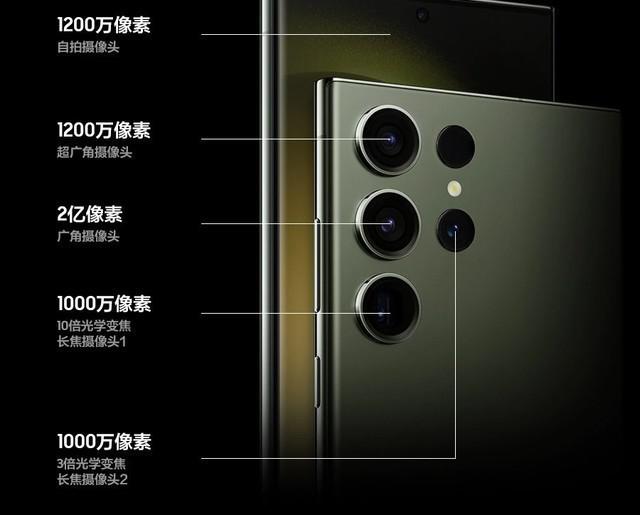
OPPO Find X7 Ultra uses the current top-notch rear four-camera module, which OPPO officially calls the Hasselblad full-focus master imaging system. These four lenses are: a 50-megapixel new-generation 1-inch outsole wide-angle lens with an aperture value of f/1.8, using a 1G7P optical lens design and supporting OIS anti-shake; a 50-megapixel ultra-wide-angle lens with an aperture value of f/2.0 and using The 6P optical lens design supports 4cm macro shooting; and a 50-megapixel super-light-sensing periscope telephoto lens and a 50-megapixel close-up periscope telephoto lens, both with OIS anti-shake.
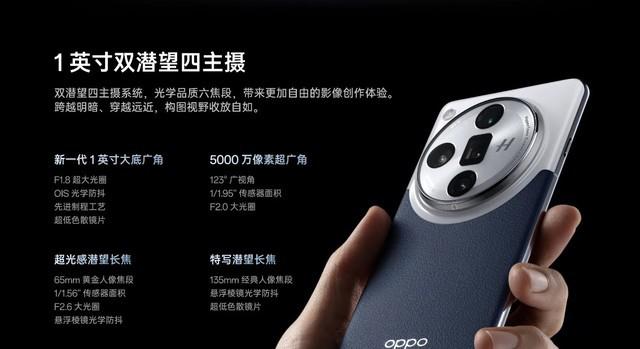
In daily photography, parks, high-rise buildings, and streets and alleys will become the subjects of photography enthusiasts. In these scenes, the telephoto lens can help us easily capture distant architectural details and avoid interference from debris in the picture.
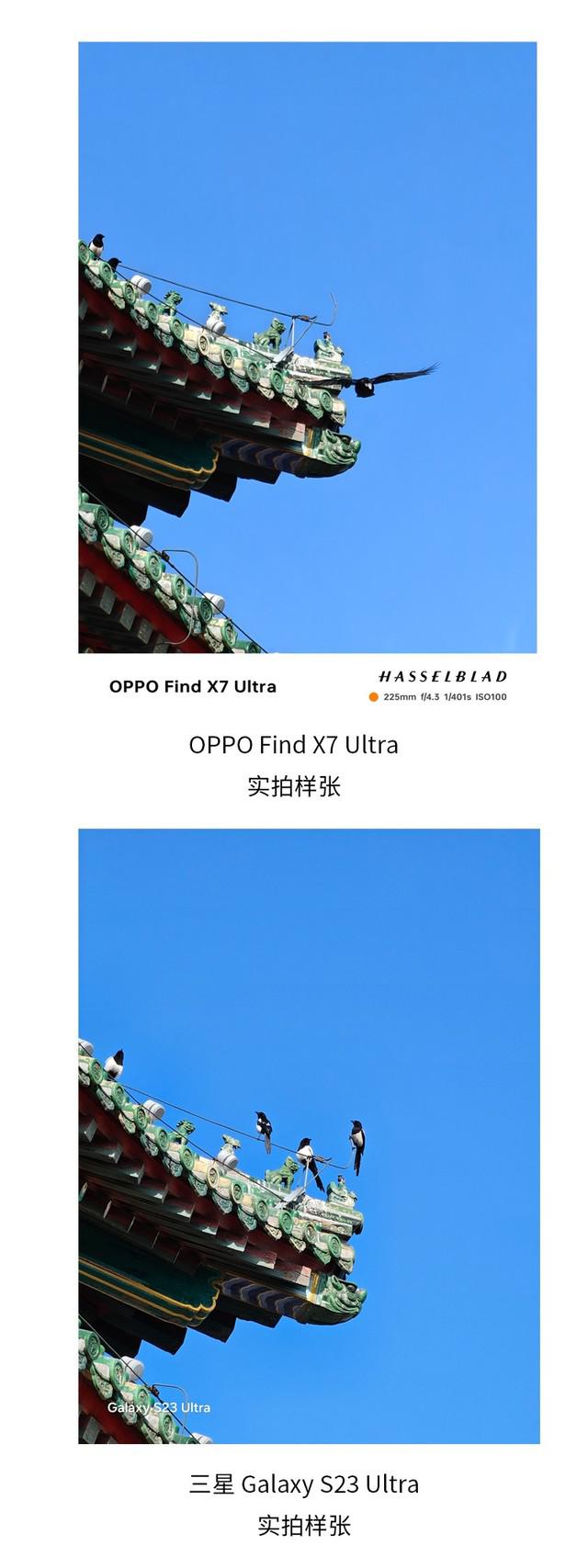
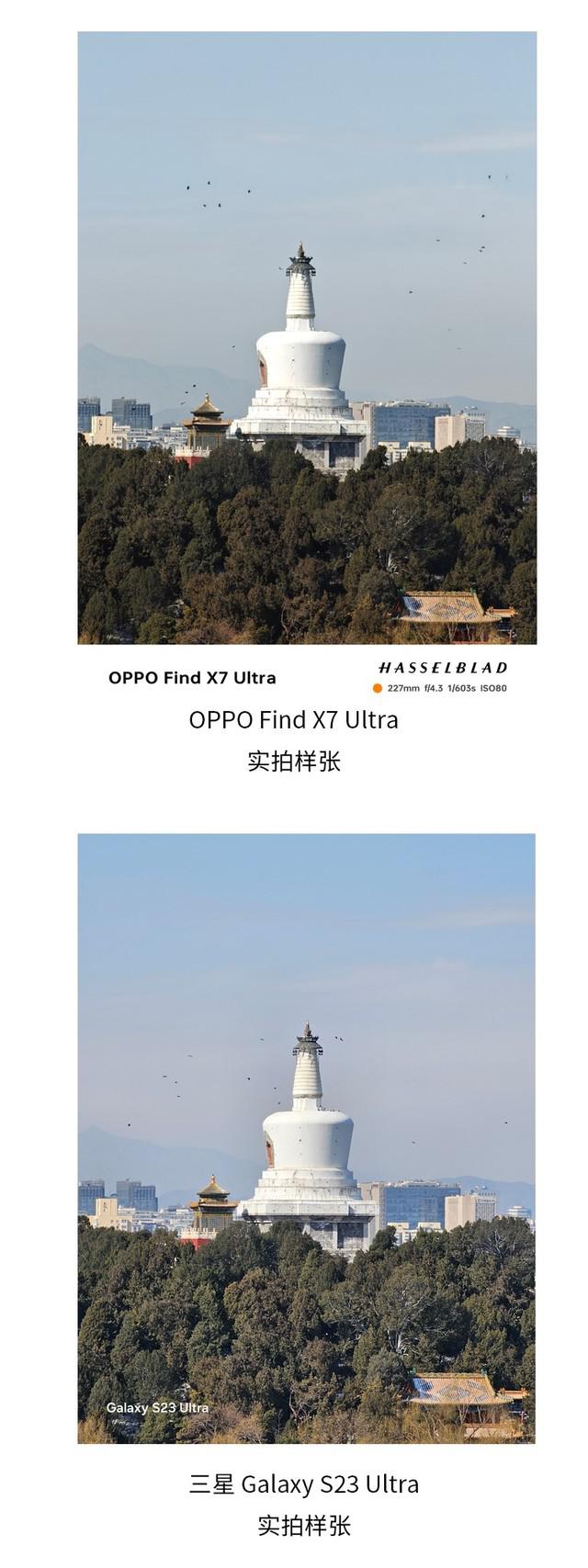
Through the real-shot samples, we can see that OPPO Find X7 Ultra shows excellent performance when shooting at 10x telephoto. Image quality and color reproduction capabilities. The architectural lines in the picture are clear and the colors are full. Even in environments with complex lighting, the image quality can be maintained at a high level. Samsung's imaging flagship mobile phone pays more attention to the details of the picture when shooting at telephoto. Its lens can capture more detailed information, making the picture more delicate.
In landscape photography, a 3x telephoto lens can help us better compress the picture, highlight the subject, and avoid unnecessary interference from elements. In the test, OPPO’s flagship imaging phone demonstrated excellent image stability and color restoration capabilities when shooting natural scenery with 10x zoom. Whether it is distant buildings, trees, or nearby flowers and plants, they can be clearly and naturally displayed.
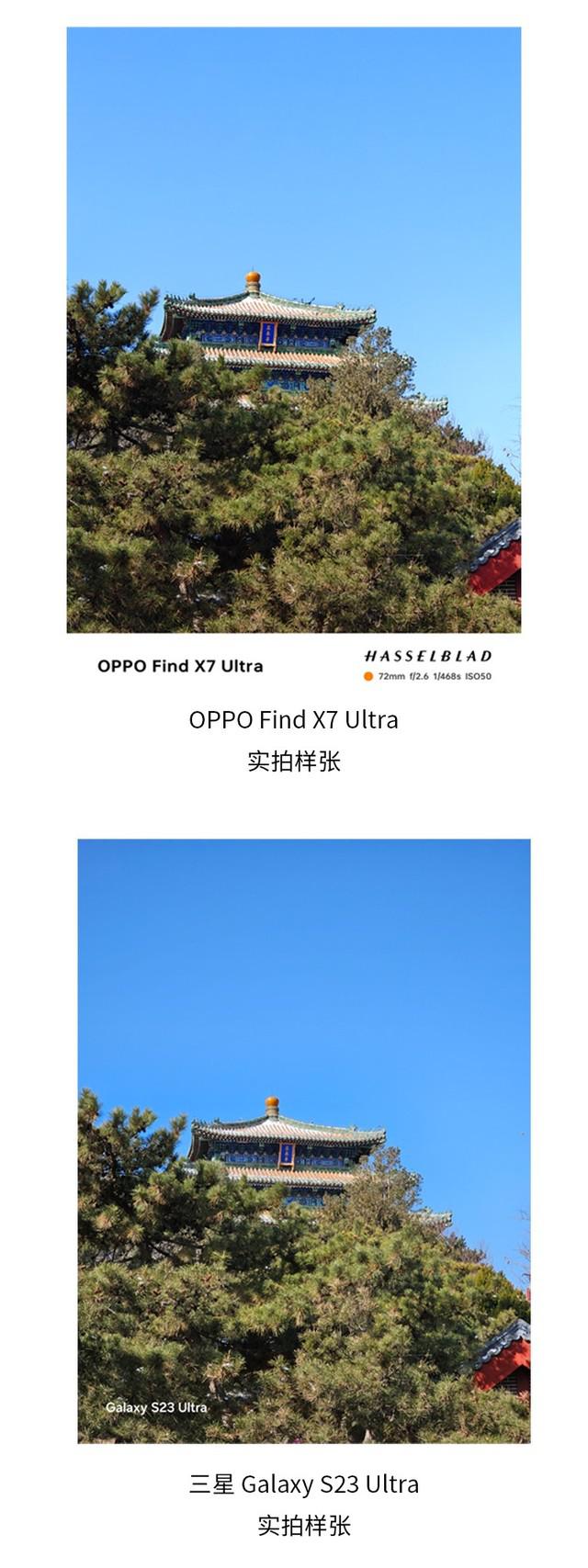
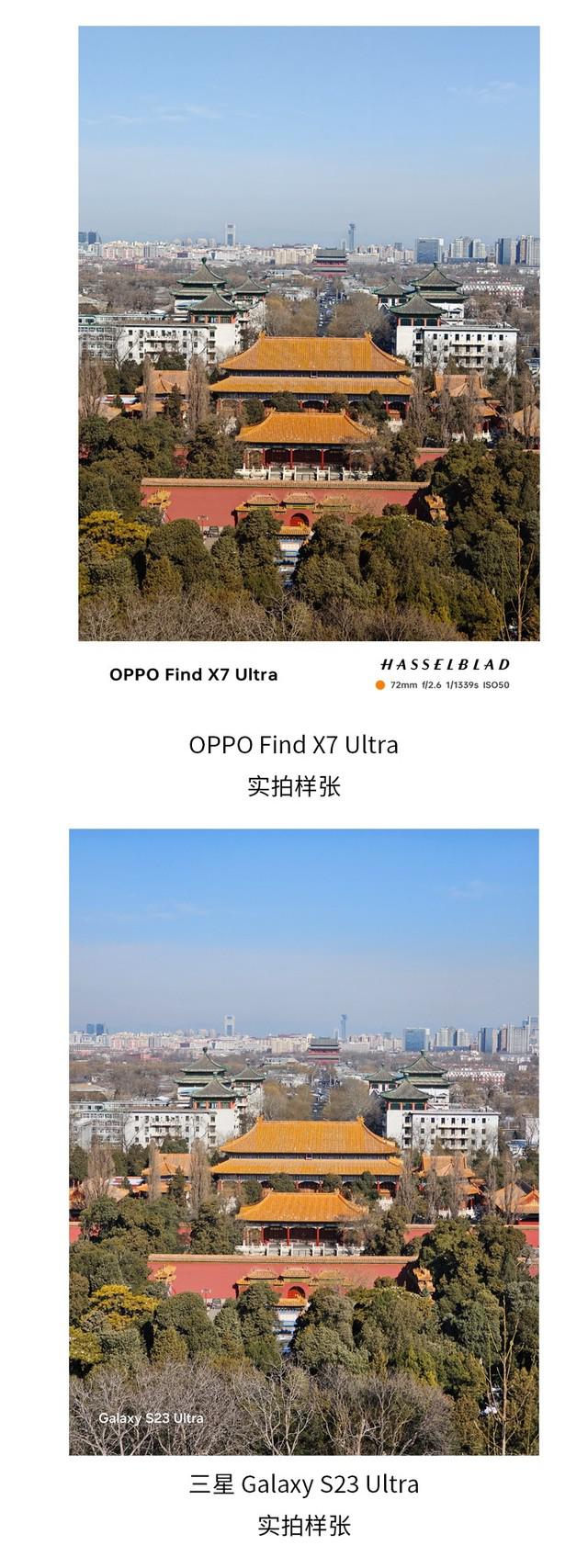
When Samsung's flagship imaging phone shoots natural scenery at telephoto, the dynamic range and layering of the picture are more prominent. In complex light environments such as backlighting, Samsung mobile phones can better handle the relationship between light and dark in the picture and maintain high contrast and clarity.
Summary
Through the comparative evaluation of the above scenarios, we can see that OPPO and Samsung’s imaging flagship phones have their own advantages and characteristics in telephoto shooting. OPPO phones perform well in color reproduction and stability, while Samsung phones are superior in detail and contrast. Therefore, when choosing a telephoto shooting phone, users can make a choice based on their own needs and preferences. No matter which mobile phone you choose, as long as you master the shooting skills and methods, you can take satisfactory photos.
The above is the detailed content of Who is the 10x telephoto king? OPPO and Samsung imaging flagship phone telephoto comparison review. For more information, please follow other related articles on the PHP Chinese website!

Hot AI Tools

Undresser.AI Undress
AI-powered app for creating realistic nude photos

AI Clothes Remover
Online AI tool for removing clothes from photos.

Undress AI Tool
Undress images for free

Clothoff.io
AI clothes remover

AI Hentai Generator
Generate AI Hentai for free.

Hot Article

Hot Tools

Notepad++7.3.1
Easy-to-use and free code editor

SublimeText3 Chinese version
Chinese version, very easy to use

Zend Studio 13.0.1
Powerful PHP integrated development environment

Dreamweaver CS6
Visual web development tools

SublimeText3 Mac version
God-level code editing software (SublimeText3)

Hot Topics
 1375
1375
 52
52
 Samsung to launch PM1753 data center-grade SSD: 14.8 GB/s sequential read, 3.4 million IOPS random read
Aug 08, 2024 pm 04:40 PM
Samsung to launch PM1753 data center-grade SSD: 14.8 GB/s sequential read, 3.4 million IOPS random read
Aug 08, 2024 pm 04:40 PM
According to news from this site on August 8, Samsung demonstrated a variety of new SSD products at the 2024 Flash Memory Summit (FMS) - PM1753, BM1743, PM9D3a, PM9E1, and also tested the ninth generation QLCV-NAND, TLCV-NAND and CMM-D –DRAM, CMM-HTM, CMM-HPM, and CMM-BCXL technologies were introduced. BM1743 uses QLC flash memory with a capacity of up to 128TB, a continuous read speed of 7.5GB/s, a write speed of 3.5GB/s, a random read of 1.6 million IOPS, and a write of 45,000 IOPS. It adopts a 2.5-inch form factor and a U.2 interface, and is idle Power consumption is reduced to 4W, and after subsequent OTA updates, only
 Samsung Galaxy S25 Ultra mobile phone leaked: 6.86 inches, horizontal screen-to-body ratio 94.1%
Aug 17, 2024 pm 01:49 PM
Samsung Galaxy S25 Ultra mobile phone leaked: 6.86 inches, horizontal screen-to-body ratio 94.1%
Aug 17, 2024 pm 01:49 PM
According to news on August 17, the source @ibinguniverse posted on Weibo today, stating that the exact size of Apple iPhone 16 Pro Max is 6.88 inches, and the exact size of Galaxy S25 Ultra is 6.86 inches. Both can be regarded as 6.9 inches. Sources indicate that the Samsung Galaxy S25 Ultra has a narrower body and a wider screen than the S24 Ultra, with a horizontal screen-to-body ratio of 94.1%, while the S24 Ultra’s horizontal screen-to-body ratio is 91.5%. Fenye checked the relevant Weibo of the source. He also commented on the newly exposed photos of iPhone 16 Pro Max and believed that it was wrong to be close to a micro-curve. The phone is actually a straight screen + 2.5D glass.
 Samsung's 10,000-yuan foldable phone W25 revealed: 5-megapixel under-screen front camera and thinner body
Aug 23, 2024 pm 12:43 PM
Samsung's 10,000-yuan foldable phone W25 revealed: 5-megapixel under-screen front camera and thinner body
Aug 23, 2024 pm 12:43 PM
According to news on August 23, Samsung is about to launch a new folding mobile phone W25, which is expected to be unveiled at the end of September. It will make corresponding improvements in the under-screen front camera and body thickness. According to reports, Samsung W25, codenamed Q6A, will be equipped with a 5-megapixel under-screen camera, which is an improvement over the 4-megapixel camera of the Galaxy Z Fold series. In addition, the W25’s external-screen front camera and ultra-wide-angle camera are expected to be 10 million and 12 million pixels respectively. In terms of design, the W25 is about 10 mm thick in the folded state, which is about 2 mm thinner than the standard Galaxy Z Fold 6. In terms of screen, the W25 has an external screen of 6.5 inches and an internal screen of 8 inches, while the Galaxy Z Fold6 has an external screen of 6.3 inches and an internal screen of 8 inches.
 Samsung is revealed to start installing its first ASML High-NA EUV lithography machine by the end of 2024 at the earliest
Aug 16, 2024 am 11:11 AM
Samsung is revealed to start installing its first ASML High-NA EUV lithography machine by the end of 2024 at the earliest
Aug 16, 2024 am 11:11 AM
According to news from this site on August 16, the Seoul Economic Daily reported yesterday (August 15) that Samsung will install its first High-NAEUV lithography machine from ASML between the fourth quarter of 2024 and the first quarter of 2025. It is expected to be put into use in mid-2025. Reports indicate that Samsung will install the first ASMLTwinscanEXE:5000High-NA lithography machine in its Hwaseong campus, which will be mainly used for research and development purposes to develop next-generation manufacturing technologies for logic and DRAM. Samsung plans to develop a strong ecosystem around High-NAEUV technology: In addition to acquiring high-NAEUV lithography equipment, Samsung is also cooperating with Japan's Lasertec to develop high-NAEUV lithography equipment specifically for High-NAEUV lithography equipment.
 Xiaomi 15 series full codenames revealed: Dada, Haotian, Xuanyuan
Aug 22, 2024 pm 06:47 PM
Xiaomi 15 series full codenames revealed: Dada, Haotian, Xuanyuan
Aug 22, 2024 pm 06:47 PM
The Xiaomi Mi 15 series is expected to be officially released in October, and its full series codenames have been exposed in the foreign media MiCode code base. Among them, the flagship Xiaomi Mi 15 Ultra is codenamed "Xuanyuan" (meaning "Xuanyuan"). This name comes from the Yellow Emperor in Chinese mythology, which symbolizes nobility. Xiaomi 15 is codenamed "Dada", while Xiaomi 15Pro is named "Haotian" (meaning "Haotian"). The internal code name of Xiaomi Mi 15S Pro is "dijun", which alludes to Emperor Jun, the creator god of "The Classic of Mountains and Seas". Xiaomi 15Ultra series covers
 A first look at the Samsung Galaxy Z Fold6 / Flip6 mobile phone Gemini Nano AI model: running locally, not yet integrated into Galaxy AI
Aug 10, 2024 pm 01:59 PM
A first look at the Samsung Galaxy Z Fold6 / Flip6 mobile phone Gemini Nano AI model: running locally, not yet integrated into Galaxy AI
Aug 10, 2024 pm 01:59 PM
According to news on August 10, technology media Android Authority published a blog post on August 8, stating that Samsung Galaxy Z Fold6 and Galaxy Z Flip 6 have become the first folding phones to support local running of the Gemini Nano AI model. It has not yet been integrated into Galaxy AI. According to reports citing sources, the Galaxy AI and Gemini Nano AI models are two independent systems at this stage. The two have not yet been integrated. Even text-based functions (such as chat assistance, note assistance, text recording assistance or browsing assistance) ) neither. This media test can run GalaxyAI locally without downloading the GeminiNano model: Samsun
 To run Google's Gemini Nano AI model locally, the Samsung Galaxy S25 Ultra phone was revealed to be equipped with 16GB of memory
Jul 31, 2024 pm 05:55 PM
To run Google's Gemini Nano AI model locally, the Samsung Galaxy S25 Ultra phone was revealed to be equipped with 16GB of memory
Jul 31, 2024 pm 05:55 PM
According to news on July 31, the source @ibinguniverse posted a tweet on the Equipped with 16GB of memory. Samsung mobile phone memory capacity update Samsung has launched 16GB memory on Galaxy S20 Ultra and Galaxy S21 Ultra mobile phones. Starting from Galaxy S22 Ultra, including the latest flagship Galaxy S24 Ultra mobile phone, the memory capacity of Samsung mobile phones is capped at 12GB. It is reported that the upcoming Samsung Galaxy S25 and Galaxy S25+ will use 12GB LPDD
 OPPO Find X7 is a masterpiece! Capture your every moment with images
Aug 07, 2024 pm 07:19 PM
OPPO Find X7 is a masterpiece! Capture your every moment with images
Aug 07, 2024 pm 07:19 PM
In this fast-paced era, OPPO Find X7 can use its imaging power to let us savor every beautiful moment in life. Whether it's magnificent mountains, rivers, lakes, or seas, warm family gatherings, or encounters and surprises on the street, it can help you record them with "unparalleled" picture quality. From the outside, the camera Deco design of Find It looks very recognizable and has a high-end feel. The inside is also unique, starting with the basic hardware configuration. FindX7 maintains the previous



